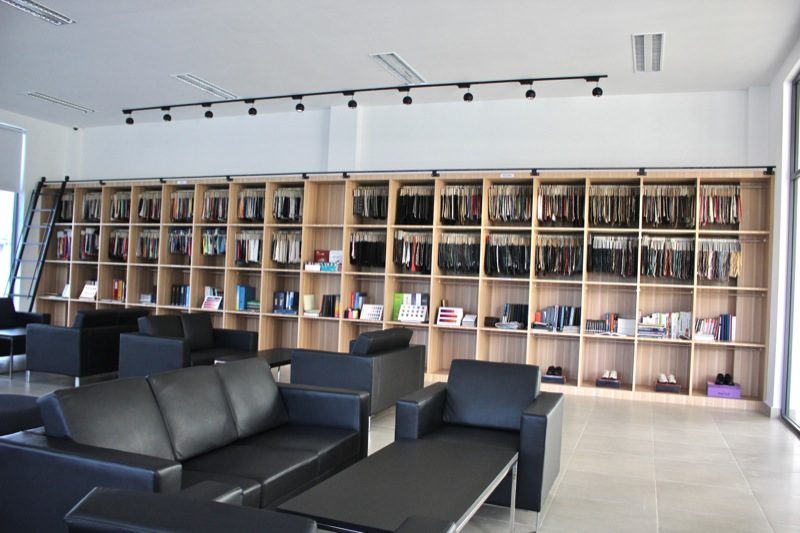Cambodia’s first garments manufacturing training institute will begin classes today, aiming to educate a new generation of students in apparel design, development, management, merchandising and industry engineering.
More than 160 workers from 14 factories across the country will begin classes at the Cambodian Garment Training Institute, which has been organized by the Garment Manufacturers Association in Cambodia and set up inside the Phnom Penh Special Economic Zone.

The institute seeks to be part of the solution to the “skills gap” that exists in one of Cambodia’s most important industries, and will look to train workers and help fill middle-management vacancies.
“These courses are based on the jobs that are lacking the most in the industry,” said Andrew Tey, the institute’s director.
The institute offers three different diploma programs, which all last about three months, and will be made up of a selection of 27 short courses that span three to five days each.
Mr. Tey said the short courses on their own had seen the most interest.
“So far, we haven’t had factories send their staff members to receive diploma courses because they find that they cannot afford to send their staff for so long,” Mr. Tey said. Most of those attending the initial courses will have their tuition covered by their factories, he added.
In addition to courses on manufacturing skills, the institute will also offer a “Train and Place” program for high school and university students as well as current garment workers that includes placement at a factory as a management trainee.
The program requires a $800 deposit, but students will receive a minimum salary of $250 during their stints as trainees and can look to make up to $450 per month for similar positions once they graduate after about a year, the institute said.
The garments manufacturing industry is currently Cambodia’s largest formal private sector employer with more than 700,000 workers, according to an Asia Foundation report from March. The International Labor Organization says the sector also provides almost 80 percent of the country’s total export revenue.
However, finding workers with the right skills remains a challenge, the Asia Foundation report says.
Chou Ngeth, senior consultant at regional firm Emerging Markets Consulting, said the productivity of production line workers was a concern, explaining that the industry needed to improve their skills and use modern machines in order to produce higher-value added goods and remain competitive.
Rising wages and intensifying competition from neighboring countries—such as Burma and Vietnam—have been threatening the sector’s attractiveness for investors.
Mr. Ngeth added that managerial opportunities in the garments industry could be an attractive option for university graduates, many of whom have struggled to find jobs.
“This is an opportunity for them to first do professional work,” and in the long term work at the management level, he said.
According to the institute, funding for the center has come from the French Development Agency (AFD), while TaF.tc International, a Singapore-based fashion institute, is providing technical assistance.
Ath Thorn, president of the Cambodian Labour Confederation, questioned GMAC’s use of loans from the AFD to fund the institute, saying it looked more like a “profit-making business” than an effort to build the capacity of garment workers.
“The institute is a good idea in order for workers to learn those skills. But employers have a responsibility to train workers anyway, and they have not. This project is more like a business idea than what we thought,” he said.
“They should allow workers who want the training to take it, and they should reduce the fees,” he said, adding that the project should have a committee overseeing how the money from AFD is allocated.
“If factories send over only management staff to receive the training, and those who do not have jobs want to receive training in order to get jobs, they still can’t do anything.”
Mr. Tey, the institute’s director, said all of the courses on offer had come directly from TaF.tc and would be taught by international trainers for the first year. By the second year, they hope to have at least 50 percent of the courses taught by Cambodian trainers, moving to 100 percent by the third year.
The institute has eight classrooms and can handle about 200 students at a time, Mr. Tey said.